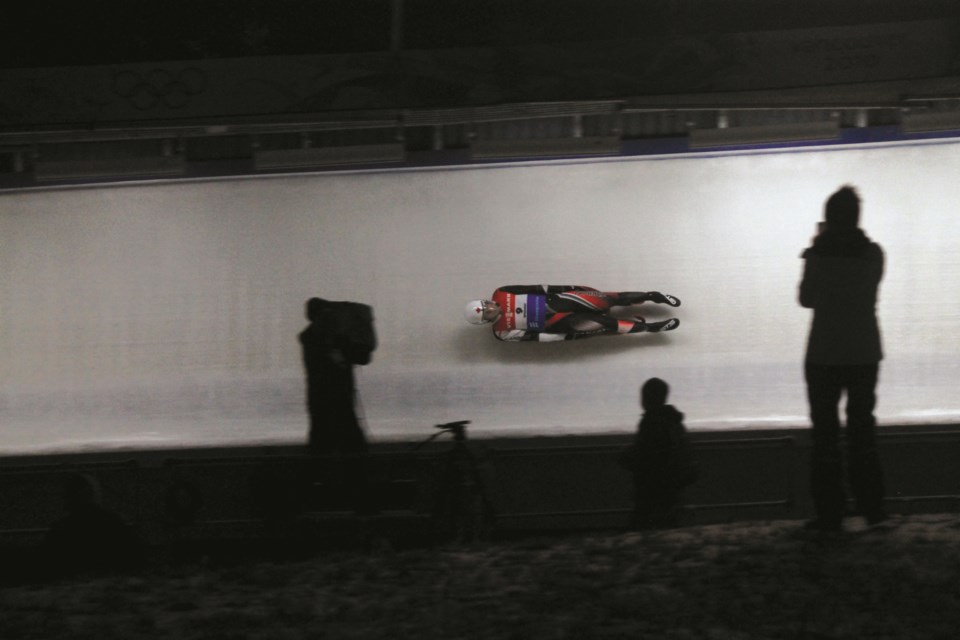Just over one year after having the 2021 International Luge Federation (FIL) World Championships pulled from its events schedule, the Whistler Sliding Centre can look forward to hosting the prestigious event once again.
Whistler has officially been awarded the 2025 Luge World Championships, confirmed a vote by FIL Congress delegates in Salzburg, Austria on Sept. 25.
The last time the sliding centre hosted the Luge World Championships was in 2013—during Whistler Sport Legacies president and CEO Roger Soane’s first week on the job.
“I just think it’s great that it will then be 15 years beyond the [2010] Olympics, and we’re still hosting world-class events,” Soane said. “There were a lot of doubters within the community [and] within government that we could keep legacies performing as long as we have.”
The track built for the 2010 Games won the 2025 world championships with 14 votes, while Swiss challenger St. Mortiz earned 11 votes, according to a release.
Two other bidders, Lake Placid, N.Y. and Sigulda, Latvia, agreed to withdraw their candidature prior to the vote considering Whistler wasn’t able to host the 2021 FIL World Championships due to the pandemic. The FIL last September decided to hold the season’s championships in Europe, considering Canada’s strict COVID-19 border restrictions, which were in place at the time.
“It’s a great testament to the team at our venues that keep on producing these great events,” Soane said.
“We have facilities that are still looked upon as being some of the best in the world.”
That said, an opportunity to host events like a world championships often translates into an opportunity to improve WSL facilities, said Soane. “Every time we do something we realize that we are getting older.”
While the WSC track itself is “in great shape,” Soane highlighted the venue’s spectator facilities as one aspect of the event experience that could use some enhancement.
Adding to the excitement is the fact that the 2025 World Championships will be one of the final major luge events taking place before the 2026 Winter Olympic Games in Italy.
Hosting world championships on home ice typically reduces Canadian athletes’ travel costs, opening up more spots and more opportunities for local athletes to slide on the world stage while on a familiar track, noted Soane.
“It really is entertaining to watch these kids who have grown up in Whistler finally reach the world stage,” he said.
“It’s what the legacies are all about. And I’m sure by 2025, we will have a new crop of athletes that are willing to, and ready to take that next step. Whether they will make the Olympics, who knows, but our luge program is one of the programs that is populated by kids that are in the Sea to Sky corridor.”
Major international events are beneficial to the resort beyond the Whistler Sliding Centre’s walls, Soane explained, even if the vast majority of tourists flock here to slide down the mountain on skis rather than sleds.
“These events are always televised, and they’re televised in some of our biggest markets where sliding is very much a key sport,” Soane said. “In Germany and Latvia, Russia, these will be on the highlight reels in these countries. So it sort of gives us exposure as a result, but it also attracts people so you know you have these people that will follow the circuit and go to different areas.”
Echoed Luge Canada sport director Stephen Harris in a release: “Hosting a World Cup in your own country is of great importance and offers great opportunities to promote the sport. The impact of the 2021 World Championships cancellation was seen both on the revenue side and in our ability to showcase the sport of luge across Canada.
“With the 2025 World Championships, we can raise awareness and increase recruitment of young talent to the sport of luge.”
Luckily, Whistlerites won’t have to wait until 2025 to watch some high-level sliding—even without any luge, bobsled or skeleton world-cup stops scheduled for the Whistler track this season. The sliding centre is currently gearing up to host International Bobsled and Skeleton Federation (IBSF) North American Cup races this fall, from Nov. 4 to 14.
The event will largely feature racers from smaller nations and up-and-coming North American athletes, said Soane, adding that the event is not ticketed.
“So you’ll be able to come in and watch them train for free, watch them race for free, and it’s a sort of a great introduction to see how the sport operates and see some of the young athletes that may be going to the Olympics in 2026.”




